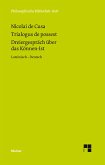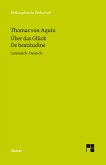This volume is based on the ongoing studies on post-Avicennian philosophy in the context of naturalising philosophy and science in Islam from the 12th to the 14th century – a topic that deserves the special attention of historians of Islamic intellectual history. The contributors address the following questions using case studies: What was philosophy all about from the 12th to the 14th century? And how did Muslim scholars react to it during the period under consideration? The present volume approaches complex philosophical topics from different angles and is structured around six main sections: 1. Historical and Social Approaches to Philosophy, 2. Knowing the Unknown, 3. God, Man and the Physical World, 4. Universals, 5. Logic and Intellect, and 6. Anthropomorphism and Incorporealism.








